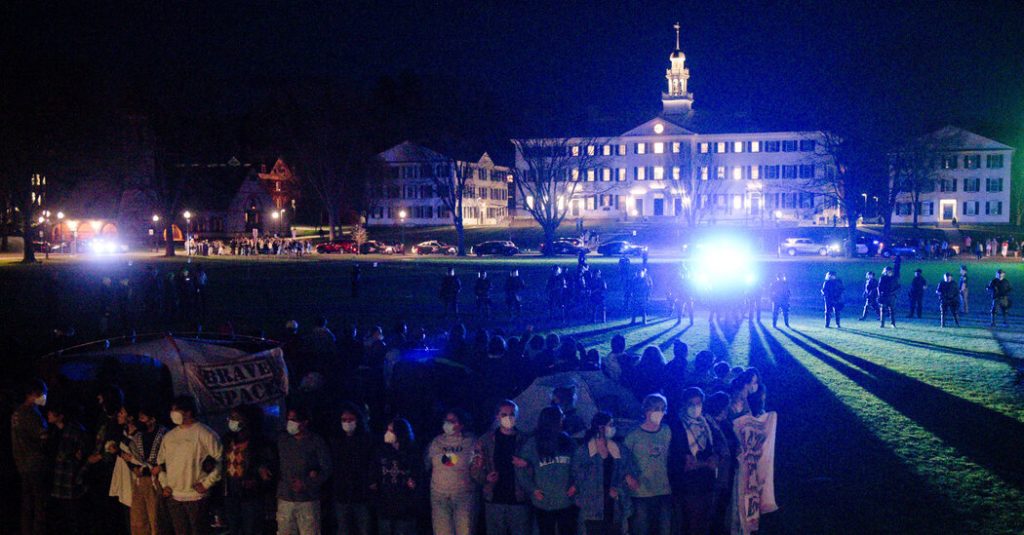The president of Dartmouth College, Sian Leah Beilock, authorized police action to clear a student encampment that was set up to protest Israel’s war in Gaza. The quick response led to the arrest of student protesters, student journalists, as well as a bystander who suffered a fractured shoulder in the scuffle. Some have criticized Dr. Beilock’s decision, claiming that using law enforcement against nonviolent protesters goes against the principles of open dialogue and engagement on college campuses.
Dartmouth College’s handling of the student encampments has been in stark contrast to other universities across the country. While some institutions struck agreements with protesters and faced criticism for being too lenient, Dartmouth immediately called in law enforcement to clear the tents. This action has sparked campus uproar, with faculty members and students questioning the use of force in response to nonviolent protests. Some have argued that the police presence only escalated tensions and led to unnecessary injuries.
The decision to involve law enforcement at Dartmouth College has drawn both support and backlash from the campus community. While some faculty members and students feel that Dr. Beilock’s actions were necessary to maintain campus safety, others believe that the response was heavy-handed and inappropriate. The use of police force in response to student protests has not been seen on such a scale since the antiwar movement in 1970, prompting concerns about the future of freedom of speech and assembly on college campuses.
Dr. Beilock defended her decision to authorize police action during a tense online meeting with faculty, citing the need to ensure the safety of the campus and prevent external agitators from joining the protest. However, many faculty members and students remain dissatisfied with her explanation, arguing that the violence was primarily instigated by law enforcement. Calls to drop charges against the arrested students and journalists have intensified, leading to public pressure on the university administration to address the situation.
As the fallout from the arrests continues, the campus community at Dartmouth College remains divided. While some support Dr. Beilock’s actions and believe that she acted in the best interests of Jewish students and campus safety, others see the arrests as an infringement on free speech and expression. The university’s response to the backlash, including dropping charges against the student reporters, reflects ongoing tensions and disagreements within the institution. The ultimate impact of these events on campus dynamics and relationships remains to be seen.
Despite the controversy and turmoil surrounding the arrests, student activists at Dartmouth College remain committed to their cause. The encampments and protests have become a symbol of pro-Palestinian activism on college campuses, with students like Kevin Engel vowing to continue their efforts for divestment from Israel. The ongoing protests and demonstrations highlight the complex and evolving nature of campus activism, free speech, and the role of universities in addressing contentious political issues.







